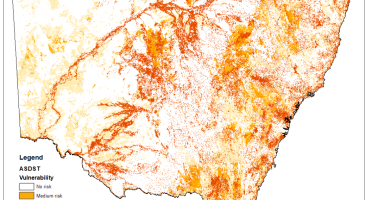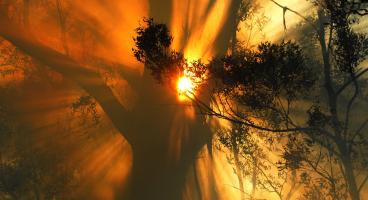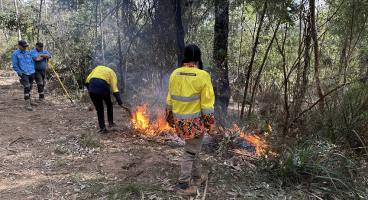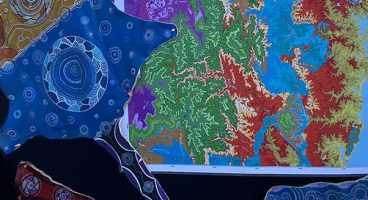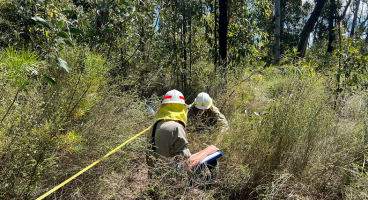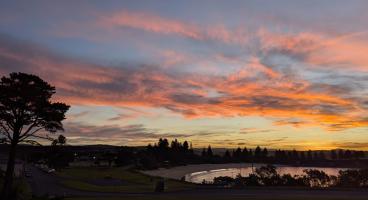Applied Bushfire and Natural Hazards Research
The NSW government is supporting innovative bushfire research to drive impactful change for healthy and sustainable landscapes and communities. The research is being undertaken within the Science and Insights Division of the Department of Climate Change, Energy, the Environment and Water and the NSW Bushfire and Natural Hazards Research Centre.
Remote Sensing of Fire
Remote sensing scientists from the Department of Climate Change, Energy, the Environment and Water’s, Science and Insights Division are developing a complete system of monitoring and mapping fire by remote sensing.
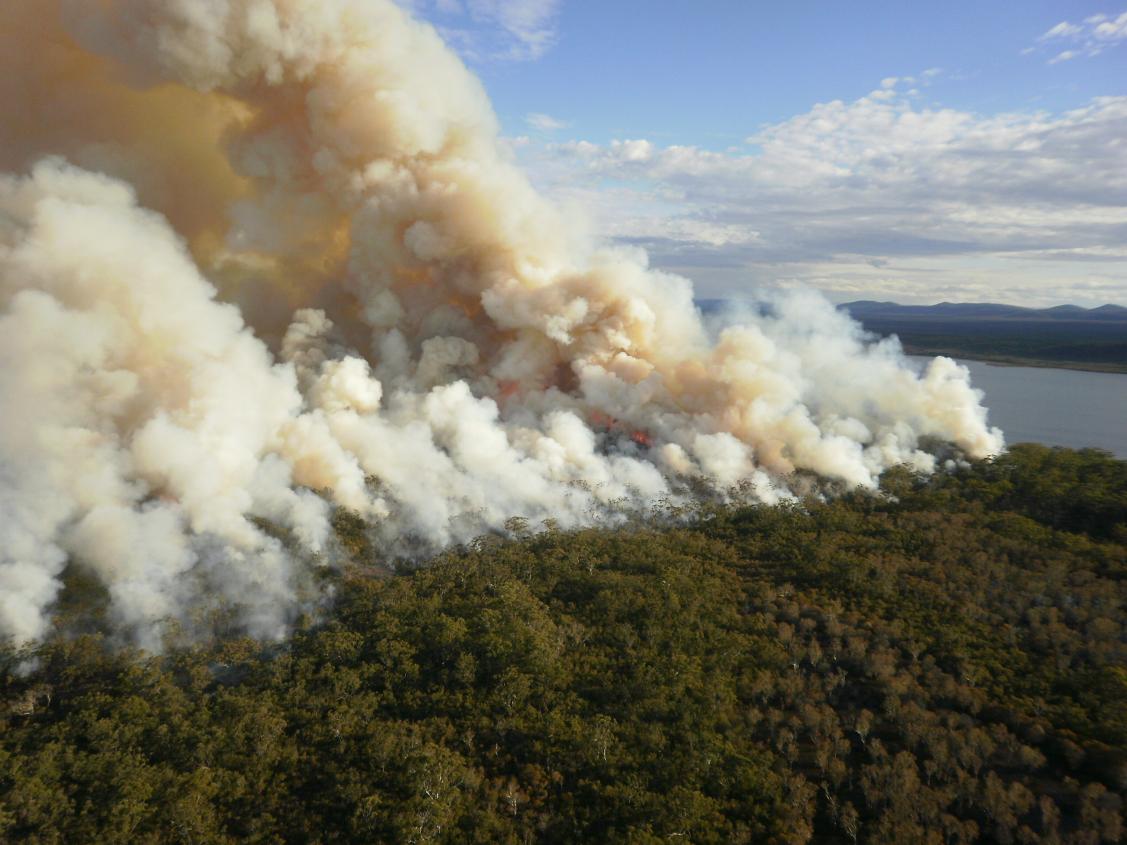
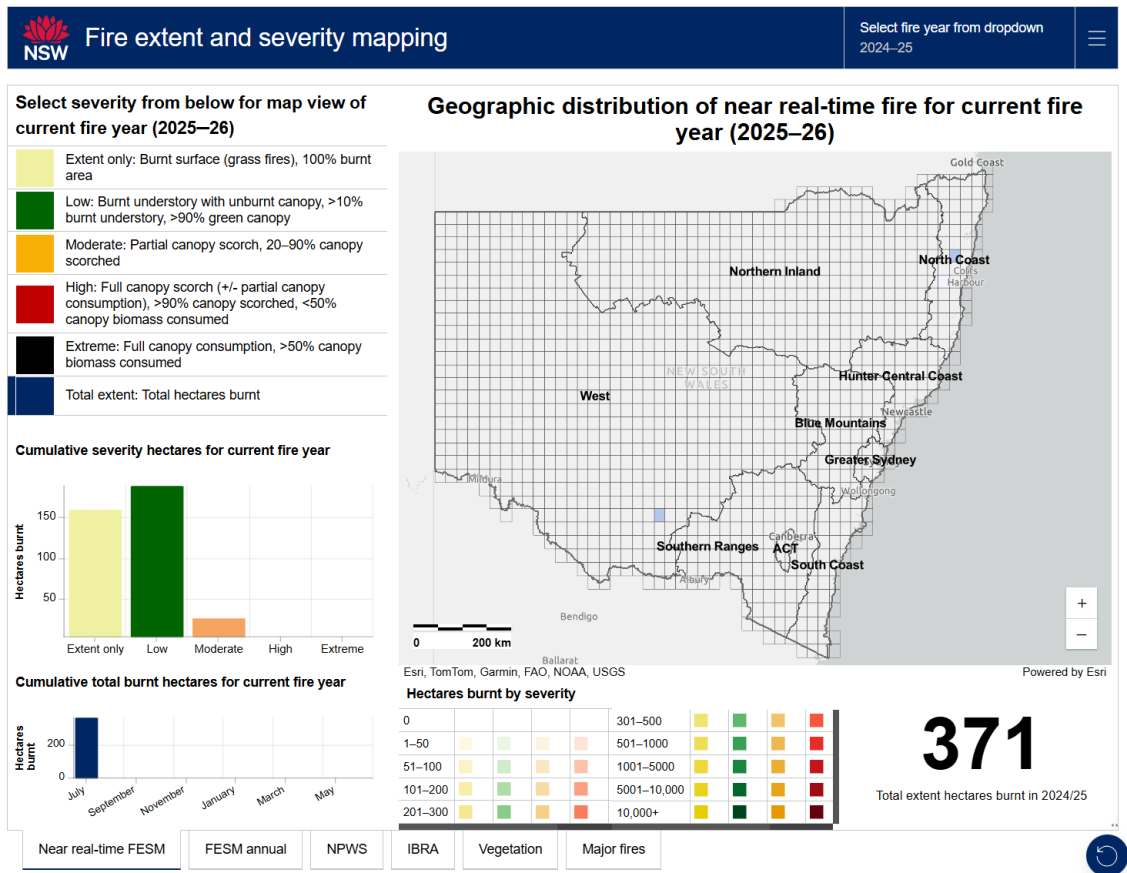
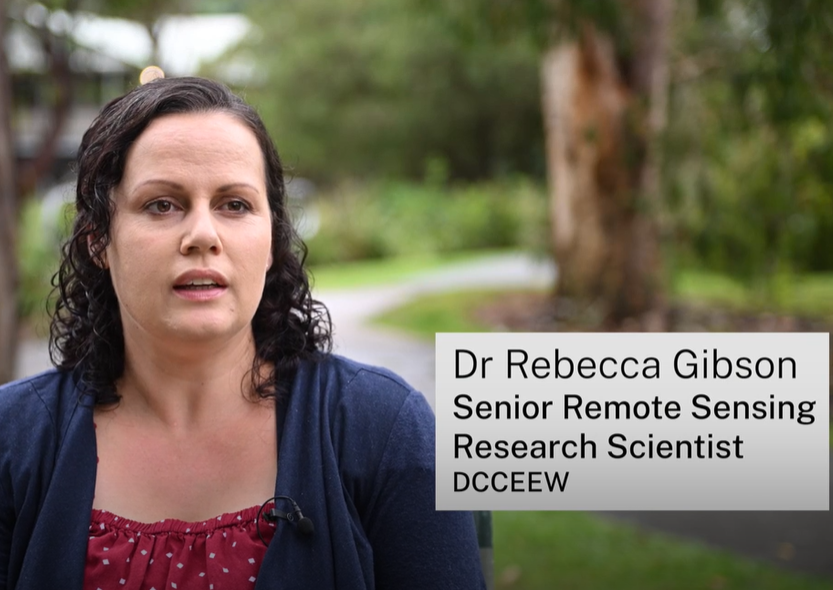
An overview of the Applied Bushfire Science Program
The Applied Bushfire Science Program (ABSP) is working to develop scientific knowledge in partnership with NSW land and fire management agencies. The ABSP conducts world-class research on risk-based fire management for environmental and Aboriginal cultural values, including long-term ecosystem monitoring and ecological and climate modelling. Its interdisciplinary team comprises ecologists, soil scientists, cultural scientists, social scientists, and knowledge exchange experts working collaboratively. The team applies the latest scientific knowledge and has established strong collaborations to innovatively update key policies and practices for the reduction of harm to biodiversity and cultural values.
The ABSP began in 2022 and was designed to address several recommendations from the 2020 NSW Bushfire Inquiry. Since then, $14m in funds have been invested in bushfire science via the ABSP. The program is housed within the NSW Department of Climate Change, Energy, the Environment and Water. ABSP scientists use the best available science to develop new, evidence-based, scientific products and tools, and collaborate with fire planning and management agencies to ensure their outputs can be effectively applied. These agencies include the National Parks and Wildlife Service, NSW Rural Fire Service, Forestry NSW, Crown Lands, and Local Aboriginal Land Councils and communities.
The ABSP established the Bushfire and Natural Hazards Research Centre (BNHRC) in January 2023. The BNHRC was set up to build on the success of the previous NSW Bushfire Risk Management Research Hub, to develop novel solutions for natural hazards in the changing landscapes of NSW. You can find the research published by the first NSW Bushfire Hub at https://www.nsw-bnhrc.org/legacy-research.
The ABSP team continues to administer the BNHRC and provides a knowledge exchange function, with two full-time BNHRC knowledge exchange officers based within our team. The ABSP science team collaborates closely on all projects with the BNHRC University based researchers. This strong partnership, along with the in-house knowledge exchange focus, ensures research outputs and outcomes that drive change.
